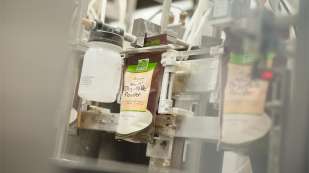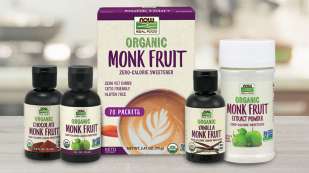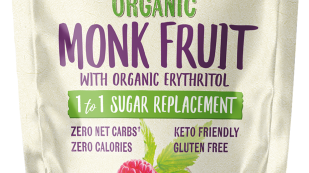Use coupon code MOISTURIZER with your purchase of $40 or more for a free†
Blemish Clear MoisturizerAllulose FAQs

What is Allulose?
Allulose (also known as d-allulose, d-psicose, and d-ribo-2-hexulose) is a rare sugar similar to fructose but with different properties. It is naturally found in raisins, figs, wheat, and corn. Offering a texture like sugar, allulose browns in baking and pairs well with other zero-calorie sweeteners such as monk fruit. To cut your recipe's calories content in half, simply use half table sugar and half allulose.
How sweet is allulose compared to table sugar?
It’s about 70% as sweet as sugar (sucrose).
What is the flavor profile of allulose? Does it tend to have an aftertaste like some other non-caloric sweeteners?
In studies, consumers report that the flavor of allulose is comparable to sugar but slightly less sweet. It does not tend to have an aftertaste like certain alternative sweeteners or a cool mouthfeel like sugar alcohols.
How do the calories in allulose compare with table sugar?
Table sugar supplies about four calories per gram (16 calories per teaspoon). By contrast, allulose has zero calories in a 7 gram (2 teaspoon) serving.
Does your Slender Zero™ Allulose use genetically engineered corn, microbes, or enzymes?
No. We only use organic allulose that is certified as non-GMO, including the microorganisms that produce the enzymes required to obtain it from corn.
How is your allulose made?
Our organic allulose is derived from organically grown corn/maize (Zea mays L.) Identity preserved as non-GMO. It is processed with sodium hydroxide (NaOH), citric acid, activated carbon, and allulose epimerase enzyme. These inputs meet national organic standards in the United States and other countries.
How pure is your allulose?
Our Slender Zero™ Organic Allulose is free from any preservatives (sulfites/SO2/antioxidants) or other additives and ingredients.
Is allulose considered safe to consume?
Yes. Allulose is approved by the U.S. Food and Drug Administration (FDA), which considers it “generally recognized as safe” (GRAS). It’s also approved for consumer use in other countries such as Japan, Mexico, Singapore, and South Korea.
Does allulose cause tooth decay as table sugar does?
No, mouth bacteria cannot metabolize allulose as a food source.
Does allulose cause unpleasant GI symptoms or other unpleasant side effects such as nausea or headache?
No. According to an FDA GRAS notice declaring an allulose sweetener ‘Generally Regarded As Safe’ for food use, these issues are dose dependent: “Thus, it was established that, for humans, the NOAEL [No Observed Adverse Effect Level] for allulose is 0.5 g/kg bw (33.3 g/day or approximately 10 tsp/day) for men and 0.6 g/kg bw (31 g/day or approximately 9 tsp/day) for women (Lida et al., 2007; FDA, 2012, 2014, 2017).”
That half a gram per kilogram of body weight (kg/bw) serving size would be about 35 grams (10 tsp) for the average 70-kilogram adult (around 154 lbs.). For reference, our product serving size is 2 tsp or 7 grams.
(Please note that we are not using that exact material since this GRAS notice is for a product produced with GMO, but the references do establish the safety and tolerability of nature-identical allulose like our own non-GMO product.)
Will allulose increase my blood sugar levels?
Allulose consumption has not been shown to trigger insulin effects after eating it, as can some artificial sweeteners.











